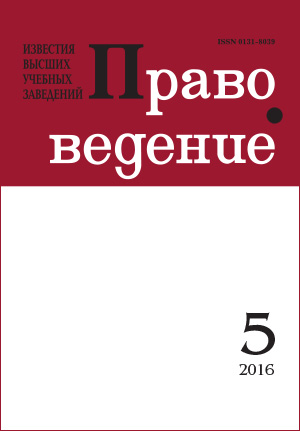Causa and contractual equity
Abstract
The institution of causa is main and one of the most effective instruments in Italian law to control a contractual provision in terms of its conformity and compatibility with the social goals. However, in the drafts of the common European law the control of causa yields to the control of contractual equity. The contractual equity being predominantly the synonym for the proportionality of performances, ensuing from a transaction, a balance between the parties’ prestations and their powers and economical abilities. In the liberal doctrines of 19 th. century the contract itself, being the implication of the parties’ free consensus, was seen as the main symbol of a balance, struck as a result of bargaining and mutual concessions — “Qui dit contractuel dit juste. The European law departs from the idea that contractual equity has to be necessarily associated with the parties’ will. On the contrary, it contributes to strengthening the objective equality of prestations principle. Eventually, the contractual equity theory makes it possible to assess, to control and, if necessary, to correct or to dismiss each particular model of regulation, set forth by the parties. At this point it is notable that the experience of romanists proves to be useful and particularly interesting for building the European private law: not only as an existing heritage containing information of particular institutes, but as a heritage representing less strict juridical method of perception of the 19th century categories, with in terms of which we become used to think and apply the law, but which, being an object of the European law research, reveal their inability to meet the contemporary requirements.
Keywords:
causa, contract, contractual equity, European Law
Downloads
References
Downloads
Published
How to Cite
Issue
Section
License
Articles of "Pravovedenie" are open access distributed under the terms of the License Agreement with Saint Petersburg State University, which permits to the authors unrestricted distribution and self-archiving free of charge.




